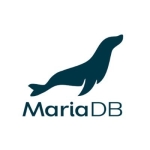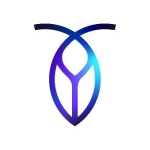What is our primary use case?
The primary use case of the IBM Db2 Database is our trading platform.
We use store procedures and SQL.
We have some tables with partitions, as well as some tables with a large amount of data.
We use partitions, we use views, and we know who uses them.
What is most valuable?
We don't have any compatibility issues because we use all IBM products. We use every IBM product. That is why we use IBM's developer tool as well. We never encounter any product compatibility issues during development and deployment.
That is one of the good things that happened to us, in my opinion.
When we had server-related issues, such as a database outage, compatibility and support were good. I believe that because the support is good, they jump in and assist us in determining the root cause.
The product is really reliable.
We have seen very few instances of problems, overall IBM products are valuable.
The most valuable features are compatibility and support.
What needs improvement?
I am currently moving away from that core application. I am not focusing on the solution.
It is our trading application, and there are some reservations, about continuing to upgrade to the latest versions even though we are currently running on older versions. I believe the first step would be to upgrade it to the most recent versions and then see if any improvements are required while continuing to provide feedback on older versions.
The pricing could be improved, it's expensive.
For how long have I used the solution?
I am not working on it as closely these days, but our application began in 2001, and we have been using the IBM Db2 database since then.
Buyer's Guide
IBM Db2 Database
March 2025
Learn what your peers think about IBM Db2 Database. Get advice and tips from experienced pros sharing their opinions. Updated: March 2025.
842,690 professionals have used our research since 2012.
What do I think about the stability of the solution?
IBM products are very nice and perform very well.
IBM Db2 Database is a stable product.
What do I think about the scalability of the solution?
We use a scalable WebSphere Application Server topology, but it's a monolithic application that can only be scaled vertically, not horizontally, because it's a monolithic single database, but those limitations exist. But there are times when I believe we are pleased with the product.
We have multiple production environments and various resources, as well as separate teams to manage the database and separate teams to manage the Application Server. I believe it began with a small team, but as time passed, I believe the number of environments and teams increased. Teams are popular now. I believe we have teams dedicated to each area.
I can say that there are approximately 100 developers, both offshore and onshore.
How are customer service and support?
We have support. In my opinion, they are prompt, we receive responses from IBM within two to three hours.
There are some challenges. There may be one or two instances where it exceeds, but we are content with that.
The product is very reliable and stable, and we used to receive prompt responses from IBM on support.
Which solution did I use previously and why did I switch?
Previously, we were using the WebSphere Application Server. Those applications are in maintenance mode.
We also worked with the Application Developer,m which is the Rational Application Developer for WebSphere software. It is running on legacy Java version 8.
No one is currently using this software because everyone has upgraded to the latest version, but our application is still running with an older version. I don't believe anyone is currently using the older version of Java and the Application Developer that we are.
It's an older version of Java, and I don't believe any developmental improvements will be made to the tool as of now. Because we are not using the most recent version of the tool and the most recent version of the WebSphere Application Server, the feedback I could provide may be ineffective.
We are in the process of migrating to the AWS Cloud.
Our design approach is to convert our monolithic applications to microservices.
We have not used Hadoop, High-Availability Clustering, or Backup and Recovery, we only use the Application Server to host our applications.
How was the initial setup?
The monolithic application is hosted on-premises.
We installed the system in 2001 and have been using it ever since.
The maintenance and support staff is quite small. We have a dedicated database team, we can support multiple database products in addition to Db2.
What's my experience with pricing, setup cost, and licensing?
I am aware that IBM pricing is expensive in comparison to other products.
However, I am not the person who dealt with pricing.
It is expensive when compared to other products.
What other advice do I have?
We are moving away from IBM products.
Everyone is now gravitating toward AWS and cloud computing. And this is a legacy monolithic platform. My advice will be ineffective. The legacy system was designed in the year 2000.
When we first launched our product, IBM hosted our client platform.
Our client insisted on using IBM products, but I believe we are now satisfied. However, the company where we started, has now been acquired by four different companies.
We are working on a different company that has Java-based products, department-based products, and many other products. It's obvious it's a trade. We will build a trading platform on which our clients and sponsors will trade.
I would rate IBM Db2 Database an eight out of ten.
Which deployment model are you using for this solution?
On-premises
Disclosure: I am a real user, and this review is based on my own experience and opinions.












